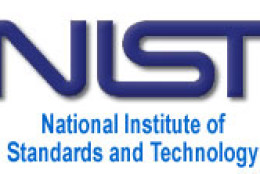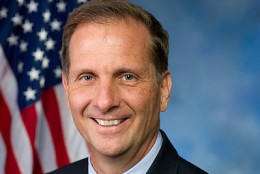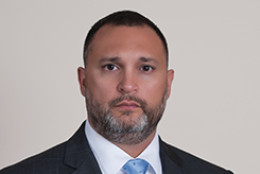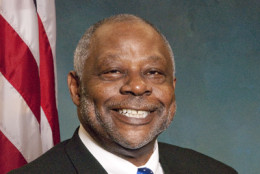Tom Temin
-
The National Institute of Standards and Technology is comparing the existing standards for Attribute Based Access Control. A new publication from the agency describes the two standards, NGAC and XACML and compares them with respect to five criteria to help users and vendors make informed decisions when addressing future data service policy enforcement requirements. David Ferraiolo, group manager of the Systems and Applications Group at NIST, tells Federal Drive with Tom Temin what Attribute Based Access Controls are and why they are important.
December 21, 2015 -
Across the federal government, there's quite a bit of agency-by-agency variation in the number of workers who choose to participate in the Federal Employee Viewpoint Survey. But some agencies are finding that they can boost their response rates pretty significantly by offering incentives to complete the survey. Do those incentives unfairly bias the results? Jeff Neal says there's no evidence for that, and agencies should want to see the highest response rates they can get on the survey. Neal is a former chief human capital officer at the Department of Homeland Security. He wrote a column on the subject. He talked with Jared Serbu on Federal Drive with Tom Temin about the types of incentives agencies can and can't offer.
December 21, 2015 -
In Monday's Federal Headlines, GAO said the lethality and survivability of the littoral combat ship is still unproven and that the Navy has had to lower requirements and remove several design features.
December 21, 2015 -
Higher performance bonus caps and new language on basic pay rates for the Senior Executive Service in President Barack Obama's executive order are largely earning praise from the federal manager community. But other initiatives in the order are bringing up more questions than answers. John Salamone is a former executive director of the Chief Human Capital Officer's Council and now vice president at Federal Management Partners. He told Federal News Radio's Nicole Ogrysko not everything in the order is brand new. She shares that with Jared Serbu on Federal Drive with Tom Temin.
December 21, 2015 -
The number of bid protests filed to the Government Accountability Office increased for the third year in a row. But that isn’t why fiscal 2015 was unusual for government contractors and federal contracting officers. Ralph White is GAO’s managing associate general counsel for procurement law. He tells Executive Editor Jason Miller on Federal Drive with Tom Temin about why 2015 was an intense year for federal procurement. Read Jason's related story.
December 18, 2015 -
In Friday's Federal Headlines, the Obama administration said it supports the Military Construction and Veterans Affairs and Related Agencies Appropriations Act, because it will help more than 24 million working- and middle-class families. The bill passed the Senate with changes already, the House just needs to approve of the changes.
December 18, 2015 -
Legislation introduced this month by Rep. Chris Stewart (R-Utah) aims to prohibit certain federal agencies from using or purchasing certain firearms. The Regulatory Agency De-militarization Act calls for federal agencies, other than those traditionally tasked with enforcing federal law, from purchasing machine guns, grenades and other weaponry regulated under the National Firearms Act. In an interview with Federal News Radio's Eric White on Federal Drive with Tom Temin, Stewart explains how he hopes this will help tamper down the distrust many Americans feel towards the federal government today.
December 18, 2015 -
After several days of last-minute haggling, the White House and congressional leaders finally reached a deal this week to fund the government through the end of 2016 — on top of an earlier agreement on top-line budget levels for both domestic agencies and defense through the end of 2017. There’s a lot to unpack in the budget deal, but Jared Serbu on Federal Drive with Tom Temin focused on how the agreement — coming a few months into the fiscal year — will affect federal procurement. Larry Allen, president of Allen Federal Business Partners, helped Federal Drive do that.
December 18, 2015 -
More than three years after the General Services Administration’s infamous Las Vegas conference featuring clowns, mind readers and bike-building morale exercises, federal employees are still feeling the effects of strict policies designed to prevent a repeat. In many cases, those policies mean several layers of agency approval before feds are allowed to attend any conference. Several science and technology organizations are telling agency leaders and Congress that those policies are a serious overcorrection to over-the-top agency conferences of years gone by, and they’re hindering the careers of federal scientists and other professionals. Dr. Sandra Magnus, executive director of the American Institute of Aeronautics and Astronautics, talked with Jared Serbu on Federal Drive with Tom Temin about the dropoff in conference attendance by federal employee and why she thinks the oversight pendulum has swung too far.
December 18, 2015 -
The National Security Agency is planning to begin a structural reorganization in January. NSA Director Adm. Mike Rogers gave a tease as to what changes are coming to the agency. Those changes include a heavier focus on innovation and partnering with industry. Federal News Radio reporter Scott Maucione shares the story with Jared Serbu on Federal Drive with Tom Temin. Read Scott's related story.
December 18, 2015 -
Last week, former Taliban POW Bowe Bergdahl broke his media silence about his reasons for abandoning his Army unit by way of the popular Serial podcast. And just a few days later, the Army made the decision to try Bergdahl for desertion and misbehavior before the enemy via a general court martial — not the lower-level tribunal that had been recommended in the military's version of a preliminary hearing. Eric Montalvo is a former Marine Corps lawyer who spent 21 years as both a military prosecutor and defense attorney. He now works for the firm Federal Practice Group. In this week's Legal Loop, he talks to Jared Serbu on Federal Drive with Tom Temin about the latest developments in the Bergdahl case, including the Army's sudden decision to try the matter in a general court martial, not a special court martial.
December 17, 2015 -
Congress hasn't reauthorized three small federal ethics agencies since 2007. But the Office of Special Counsel, Merit Systems Protection Board and Office of Government Ethics don't have a clear reason why. All three agencies are asking for Congress to consider the reauthorization and a few recommendations that they say will help them handle a growing number of cases. Federal News Radio reporter Nicole Ogrysko shares the latest on Federal Drive with Tom Temin.
December 17, 2015 -
After many, many days of closed-door negotiations, we finally have an agreement on the 2016 budget. The deal heads to the floor today, and if it passes, it means no more continuing resolutions for the remainder of 2016 and some certainty on the pay and benefits front for federal employees. Maryland Sen. Barbara Mikulski (D-Md.) is the senior democrat on the Senate appropriations committee and had a key role in negotiating the final deal. She talked with Jared Serbu on Federal Drive with Tom Temin.
December 17, 2015 -
In Thursday's Federal Headlines, the Saving Federal Dollars Through Better Use of Government Purchase and Travel Cards Act of 2015 helps prevent charge card misuse and abuse by requiring the Government Services Administration to continuously examine charge card purchases made across the federal government.
December 17, 2015 -
Budget uncertainty has been the norm for most federal agencies for several years in a row now. But the Federal Aviation Administration has suffered more than most. Long before the days of sequestration, the FAA had already gone through several years of short-term agency reauthorizations that kept its funding and programmatic priorities largely in limbo. Congress asked the Government Accountablity Office to examine the FAA's budget and how to add some predictability to the mix, and GAO has now reported back. Gerald Dillingham is the director of civil aviation issues at GAO, and he joined Jared Serbu on Federal Drive with Tom Temin to talk about the report.
December 17, 2015














